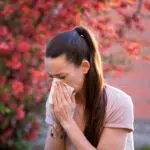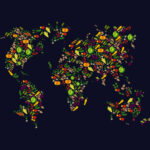World Allergy Awareness Day is on October 16. Can’t do without an antihistamine during hay fever season? This day is for you. Maybe you’re popping a pill every time your nose runs or skin breaks out. If that sounds like you, today’s as good a day as any to stop.
Let’s ditch the urge to over-medicate and understand our allergies instead. Each one, even a rash, is complex, with different triggers and, of course, treatment. One pill won’t and can’t cure all of it; only a doctor can. So, remember to visit your healthcare provider today!
History of World Allergy Awareness Day
First things first, what is an allergy? In medical terms, an allergy signals hypersensitivity to the immune system. We experience allergies when our immune system reacts to certain things in our immediate environment. These substances are otherwise harmless to the average person, but someone with a sensitive immune system can have a wildly different reaction to them. The body treats these substances as invasive foreign particles. From rain and dust to pollen, anything can trigger an allergy. Usually, allergies show up as skin flare-ups or difficulty in breathing.
Most of us are allergic to something, only the severity differs. Doctors recommend we not ignore an allergy, no matter how minor it seems. What’s the next worst thing? Self-medication.
Popping an anti-allergen is a temporary fix. When we repeatedly self-medicate, we risk the problem getting worse. Sometimes, it can be life-threatening. Allergy during the first few stages is easily treatable by a doctor. In an attempt to avoid doctor visits, many people treat allergies on their own, which then become severe. The result? Exorbitant treatments or even emergency surgery.
For perspective, there are several hundred types of allergies; each one has different triggers and separate medication. Taking generic anti-allergens isn’t effective at all. World Allergy Awareness Day hopes to raise awareness and change mindsets. What’s the best way to treat allergies? First, identify allergy triggers to the best of your abilities. Trace your activities and note where you were or what you touched or ate. Once done, seek medical treatment or get an allergy test done. You’ll be surprised at just how much detail these tests can uncover – from nut and dairy allergies to things around your house.
World Allergy Awareness Day timeline
Dr. Oscar Menderson Schloss publishes the first scientific report on food allergies.
Dr. John Bostock presents clinical descriptions of hay fever for the first time.
Dr. Clemens von Pirquet introduces the concept of allergies after noticing severe reactions to smallpox vaccines.
Researchers discover Aquagenic Urticaria — a rare allergy where the skin breaks out into hives and bumps when exposed to water.
World Allergy Awareness Day FAQs
What is World Allergy Day?
World Allergy Day is on July 8 every year. On this day, the World Health Organization aims to educate the general public on the importance of managing allergies.
Is there an allergy Awareness Month?
May is National Asthma and Allergy Month in the U.S. The day was established by the Asthma and Allergy Foundation.
What color is the allergy awareness ribbon?
Wear a teal ribbon during Food Allergy Awareness Week. The week offers a unique opportunity to raise awareness of various food allergies and help 15 million Americans afflicted by them.
How to Observe World Allergy Awareness Day
Teach kids about allergies
Explain the names of foods that can make them sick. Use games or other educational resources to make it engaging. Finally, teach them to eat foods only given by trusted adults.
Don’t pop a pill
Stop when you feel the urge to self-medicate. Visit your doctor instead.
Take an allergy test
Allergy testing can identify various allergens in our food and environments. A healthcare provider will use a skin prick or blood test to check for reactions and antibodies.
5 Facts About Peanut Allergies That Will Blow Your Mind
As common as flu
Peanut allergies affect three million people in the United States.
Friends for life
Most adults will have a peanut allergy for life.
It’s dangerous
Severe peanut allergies cause anaphylaxis or troubled breathing that can result in shock.
Immunotherapy by a doctor helps
Oral immunotherapy involves feeding bits of peanut protein to help patients build tolerance.
Don’t walk on grass
Double-check landscaping or composting products since they can contain peanut hulls.
Why World Allergy Awareness Day is Important
Better awareness of our bodies
Most of us ignore what our bodies are trying to tell us. World Allergy Awareness Day reminds us to pay attention.
To lead happier lives
Knowing what to avoid can increase our quality of life. Finally, we can bid goodbye to runny noses, rashes, or general discomfort each day.
Prioritizes health
Allergies don’t usually rank high on the list of medical priorities. We learn how ignoring symptoms can impact our health in the long run and why we must address them.
World Allergy Awareness Day dates
| Year | Date | Day |
|---|---|---|
| 2025 | October 16 | Thursday |
| 2026 | October 16 | Friday |
| 2027 | October 16 | Saturday |
| 2028 | October 16 | Monday |
| 2029 | October 16 | Tuesday |















